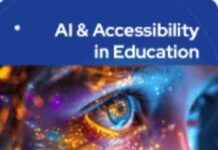AI Integration in Schools: Parents’ Cautious Optimism
Artificial intelligence (AI) has become an integral part of our daily lives, and its impact on education is undeniable. As AI technology continues to evolve and shape the way we learn, parents find themselves balancing cautious optimism with concerns about the potential risks involved. While some parents see the benefits of AI in the classroom, others worry about the ethical and safety implications that come with it.
Using AI to Enhance Human Tutors
One of the key ways AI is transforming education is by enhancing the capabilities of human tutors. By analyzing data and providing personalized feedback, AI tools can help educators tailor their teaching methods to meet the individual needs of each student. This not only improves learning outcomes but also helps students develop essential skills that will serve them well in the future.
Positive Impacts of AI on Classroom Teaching
There are several ways in which AI can make a positive impact on classroom teaching. From assisting teachers with lesson planning to providing real-time feedback to students, AI technology has the potential to revolutionize the way we educate our children. By harnessing the power of AI, educators can create more engaging and interactive learning experiences that cater to the diverse needs of today’s students.
Parental Concerns and Perspectives on AI in Education
Despite the promising advancements in AI technology, many parents have reservations about their children’s exposure to AI in the classroom. According to a survey conducted by Norton, a consumer Cyber Safety brand of Gen, 93 percent of parents of school children ages 5 and up are concerned about the use of AI in schools. Their top concerns include the risk of exposure to inappropriate content, bias in AI-generated materials, and the sharing of personal data online.
On the flip side, many parents remain optimistic about the potential benefits of AI in education. Nearly half of the parents surveyed expressed their willingness to support their children’s use of AI for schoolwork. They see AI as a valuable tool for conducting research, creating lesson plans, and enhancing the overall learning experience for their children. Despite their concerns, these parents believe that AI can play a positive role in their children’s academic development.
Cybersafety Tips for Parents
To help keep children safe while using AI technology in school, parents can take proactive steps to protect their personal information and ensure a secure online environment. Some tips include educating children on safeguarding their personal information, verifying website safety using a virtual private network (VPN), enabling age-appropriate settings on AI platforms, and promoting integrity and responsibility in online interactions. By fostering a culture of cybersafety at home and in the classroom, parents can help their children navigate the digital world with confidence and caution.
In Conclusion
As AI continues to integrate into schools and classrooms, parents are navigating the fine line between embracing the benefits of technology and safeguarding their children from potential risks. By staying informed, engaging in open conversations with educators, and taking proactive measures to protect their children’s online safety, parents can help ensure that AI enhances the educational experience without compromising their children’s well-being. With the right balance of caution and optimism, AI has the potential to revolutionize education and prepare students for a future driven by technology and innovation.




